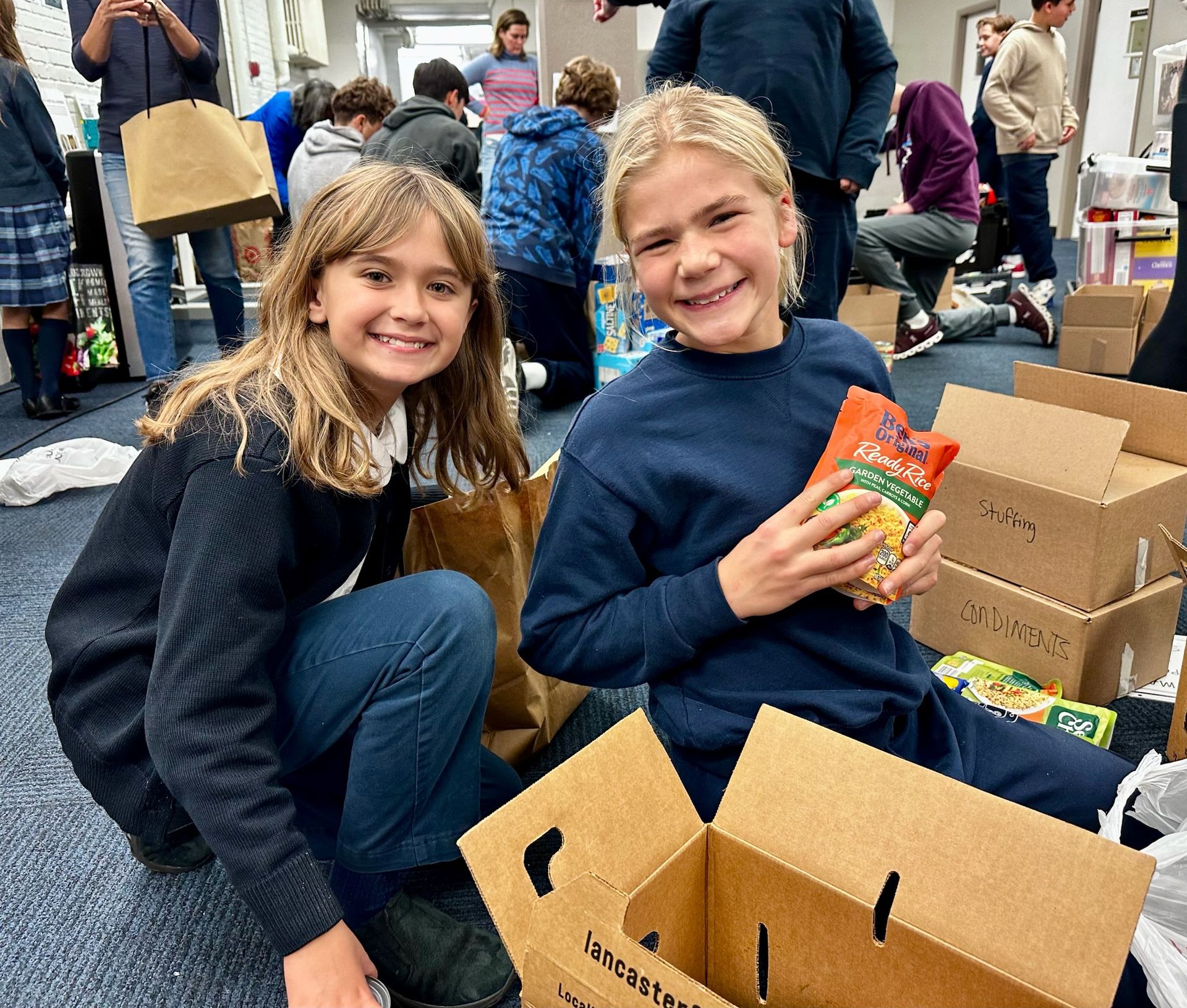Supporting your child’s mental health during the holidays

By Jessica Chamoun, Intervention Specialist
The holiday season is a time for joy and celebrations. However, for many children, the changes in routine may elicit anxiety and stress. The holidays can also cause overstimulation in children, who may feel overwhelmed by all the various events taking place. Parents may see increased meltdowns, withdrawal from activities, or even changes in behavior, and children may need extra support during this busy time of the year. Here are some ways you can support your child’s mental health during the holiday season:
- Keep routines. With exception to special occasions, such as Christmas Eve and New Year’s Eve, try to keep routines as consistent as possible. Strive to maintain eating and sleeping schedules like those your child follows during the rest of the school year.
- Limit screen time and social media. Before the start of the holidays, establish rules regarding when and how your child can use screens during the break. Set limits on how much screen time your child can have access to throughout the day. With vacation downtime, it can be easy for children to fall into the habit of using their screens more frequently.
- Get outside. Plan outdoor activities that the whole family can enjoy. This can help minimize screen time, foster more family time, and create meaningful experiences and memories.
- Encourage downtime. Scheduling quiet time for your child can reduce overwhelming feelings. Ensure that your child has time to relax and unwind by reading, listening to music, or even engaging in calming activities.
- Practice gratitude. Have your child focus on the positives in their lives by practicing gratitude. Encourage them to notice and write about the things they are thankful for this holiday season. Gratitude charts or Gratitude jars are great activities that can be used at home to help your child express gratitude and promote family discussions about what you are grateful for (click on the gratitude links for resources).

February 6, 2025
February 6, 2025 By Jessica Chamoun, Intervention Specialist Traveling for work or other reasons has become a normal part of our everyday lives. Many working parents today travel because of work demands or family commitments. As such, being away from our children for a certain period of time may be common and inevitable. Children may react to their parents' absence by experiencing some anxiety, clinginess, or by feeling sad or angry. Such emotions are typical, and a parent's brief departure gives kids the ideal chance to practice adjusting to separations. Here are some tips on how to help your child cope when you travel: Inform your child about your travel plans at the appropriate time. Using shorter time frames when informing children about your traveling plans can be helpful so that they worry less. Check- in with your child when you are away. Stay in touch with your child every day. If you are gone for several days, scheduling a daily phone call or video call as a part of your travel routine can be beneficial. Stick to Routines. Try to maintain family routines and be creative with long distance family time (for example: using technology to read a bedtime story to your child when you are away). Make an itinerary and give your child details. Use a fun colorful calendar to mark events such as your departure date, return date, and check in times. Provide children with visuals (such as pictures or a map) to give them transparency about your plans and about where you will be. Leave them notes. Leave your child notes in places they least expect (such as their lunch box or backpack) as a way to stay connected. Discuss feelings. Keep the lines of communication open and let your child know that it's appropriate to express their emotions. Normalize their feelings and reassure them that you will be back soon. Encourage social interaction. Arrange playdates with friends or family to help your child cope with your absence and keep busy. Arrange for some quality time together to catch up. Make your reunion a special one. Plan an activity or a fun outing you and your child can do together when you return. Include them in the decision- making process, so they have something to look forward to upon your return. Click here for additional resources.

January 16, 2025
It's thrilling to welcome a new baby into the family, but it can also be a very stressful and worrying time for both parents and kids. Although it's impossible to know in advance how your older child will react to their new baby brother or sister, having big emotions can be very common. It is normal for children to feel a little jealous when the family dynamics change. Older siblings may act out, possibly making the transition a little more challenging. As a result, it is essential to make the change as easy as possible by preparing your child beforehand and including them in the process. Here are some practical suggestions to help your child adjust to a new sibling: Be patient and give it time. Much like any adjustment, remember that the process of accepting a new sibling takes time. Your elder child will ultimately adjust with your acceptance and support. Involve your child in the planning process. Include your child in the practical preparations for the new baby such as decorating the room and purchasing baby supplies. Establish a ritual. Try to spend one-on-one quality time with your child. Start the ritual before the baby is born and keep it a routine till after the baby arrives. Read stories about babies. Stories can facilitate a conversation about how your family is growing and about your older child’s new role. Give your child reassurance. Talk to them about their worries and assure them. Let them know that they will always be important, they will always be loved, and how that won’t change after the baby is born. Give them roles. Give your older child some responsibilities to help with the baby around the house. Praise them when they are loving and compassionate around the baby. Click here for additional resources.

November 25, 2024
WASHINGTON — Saint Peter School (SPS) students gathered on November 14 to participate in the 37th Annual Greg Gannon Canned Food Drive. At final count, 186 boxes of food were loaded onto the truck destined for The Father McKenna Center. Donations were gathered from SPS families and neighbors as well as parishioners from St. Peter’s and St. Joseph’s churches. “The Greg Gannon Food Drive is consistently one of our students’ favorite service activities, and their commitment grows with each school year,” said Saint Peter School Principal Karen Clay . “Greg Gannon’s mission has encouraged generations of SPS students to put their faith into action. We are humbled and grateful for the opportunity to participate once again and look forward to continuing this meaningful collaboration for years to come.” “The relationship between St. Peter and the Greg Gannon Food Drive goes way back to when my father and all of his siblings went to St. Peter back in the 40s,” said Greg Gannon Canned Food Drive Executive Director Rick Gannon . “It is truly fitting that their efforts to collect the food to help those in need is a great one, with the food ending up at the Greg Gannon pantry at the Father McKenna Center. Thank you to St. Peter School for your continued efforts and supporting our fight against food insecurity.” For more information about St. Peter School community engagement and academic offerings, visit stpeterschooldc.org . # # # EDITOR’S NOTE: Click here for photos available for publication .
St. Peter School, Capitol Hill
422 Third Street SE
Washington, DC 20003
Phone:
(202) 544-1618
Fax: (202) 547-5101
Quick Links
© 2025
St. Peter School

